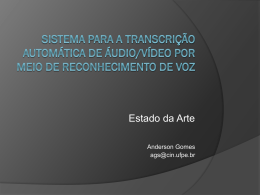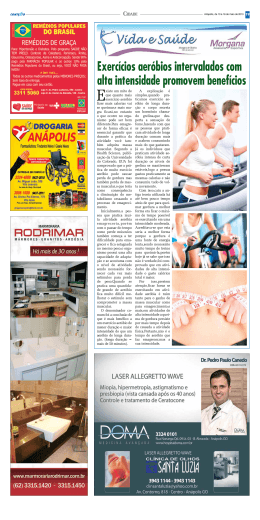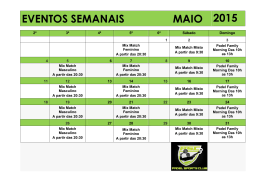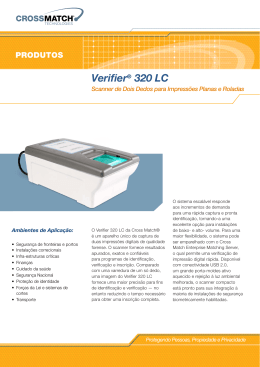Luciano Capelli Efeitos da Reposição Imediata de Carboidrato sobre o Desempenho Aeróbio 16 Horas após uma Partida de Futebol Orientador: Prof. Dr. Turíbio Leite de Barros Neto Coordenador PG: Prof. Dr. José Roberto B. Jardim Tese Universidade Federal de São Paulo, Escola Paulista de Medicina Título de Mestre em Ciências da Saúde 2003 Objetivos: O objetivo deste estudo foi analisar os efeitos da ingestão de carboidrato logo após uma partida de futebol sobre o desempenho aeróbio e recuperação do peso corporal 16 horas após o término do jogo. Métodos: O estudo foi conduzido com um protocolo do tipo duplo cego, envolvendo 20 jogadores de futebol profissional que foram aleatorizados em 2 grupos de 10 atletas cada, onde um grupo recebeu a suplementação de carboidrato (GC) e o outro recebeu placebo (GP). Os atletas foram avaliados em três momentos: Três dias antes do jogo os jogadores fizeram uma avaliação do desempenho aeróbio. No dia do jogo os atletas foram pesados antes e após o jogo e ao término da partida, receberam a suplementação (1 grama de carboidrato ou placebo por quilo de peso corporal). No dia seguinte, 16 horas após o jogo, os atletas foram novamente pesados e tiveram reavaliado seu desempenho aeróbio. Para a avaliação do desempenho aeróbio foi utilizado um teste de campo. A hidratação com água foi permitida a vontade. Resultados: A média de peso corporal pré-jogo, pós-jogo e 16h após foi, respectivamente, 72,52 ± 6,72, 70,59 ± 6,62 e 72,45 ± 6,80 para o GC e 73,68 ± 7,80, 71,95 ± 7,74 e 73,23 ± 7,66 para o GP. O peso corporal pós-jogo foi significantemente menor em ambos os grupos (p < 0,001) quando comparados ao pré-jogo e continuou menor 16h após o jogo para o GP (p < 0,001). A média da distância percorrida no teste de campo 3 dias antes do jogo e 16h após foi, respectivamente, 1578 ± 162,78 e 1548 ± 102,18 para o GC e 1578 ± 171,58 e 1452 ± 97,16 para o GP. O desempenho aeróbio 16h após o jogo foi significantemente menor em relação ao primeiro teste para o GP (p = 0,001). Conclusão: O GC recuperou o peso corporal e o desempenho aeróbio 16 horas após o jogo. O GP, 16 horas após o jogo permaneceu com o peso corporal e o desempenho aeróbio inferior a antes do jogo. A reposição de carboidrato não teve efeito sobre a freqüência cardíaca máxima atingida no teste de desempenho aeróbio 16 horas após o jogo. Pode-se sugerir que o uso imediato de carboidrato após o jogo de futebol acelera a recuperação 16 horas após o jogo. Palavras-chaves: futebol, reposição de carboidrato, capacidade aeróbia. Effects of immediate carbohydrate loading on aerobic performance 16 hours after a soccer match Purpose: The aim of this study was to analyse the effects of carbohydrate (CHO) ingestion following a soccer match on aerobic capacity and body weight recovery 16 hours after the match. Methods: the study was carried out under a double blind type experimental protocol, 20 professional soccer players were randomized into two groups of ten, with one group receiving a carbohydrate supplement (CG) and the other receiving a placebo (PG). The athletes were assessed at three stages. Three days before the match the players underwent an aerobic performance test. On the day of the match the athletes were weighed before and after the match and at the end of it they were given a supplement (1 gram of CHO or placebo per kilo of body weight). On the following day, 16 hours after the match, the athletes were weighed once more and their aerobic performance was again tested. The aerobic performance assessment was carried out by field test. Re-hydration through drinking water was freely permitted. Results: the mean ± SD body weight values pre-match, post-match and 16 hours later were, respectively, 72.52 ± 6.72, 70.59 ± 6.62 and 72.45 ± 6.80 for the CG and 73.68 ± 7.80, 71.95 ± 7.74 and 73.23 ± 7.66 for the PG. The post-match body weight was significantly lower for both groups (p<0.001) when compared to pre-match and remained lower 16 hours after the match for the PG (P<0.001). The mean distances covered in the field tests 3 days before the match and 16 hours after it were, respectively, 1578 ± 162.78 and 1548 ± 102.18 for the CG and 1578 ± 171.58 and 1452 ± 97.16 for the PG. Aerobic performance 16 hours after the match was significantly lower than in the first test in the PG (P=0.001). Conclusion: the CG regained body weight and aerobic performance 16 hours after the match. Body weight and aerobic performance in the PG remained lower 16 hours after the match compared with before it. CHO loading had no effect on the maximum heart rate obtained in the aerobic performance test 16 hours after the match. This may mean that the use of CHO immediately after a soccer match speeds up recovery 16 hours after the match. Key words: soccer, receiving a carbohydrate supplement, aerobic performance.
Download






